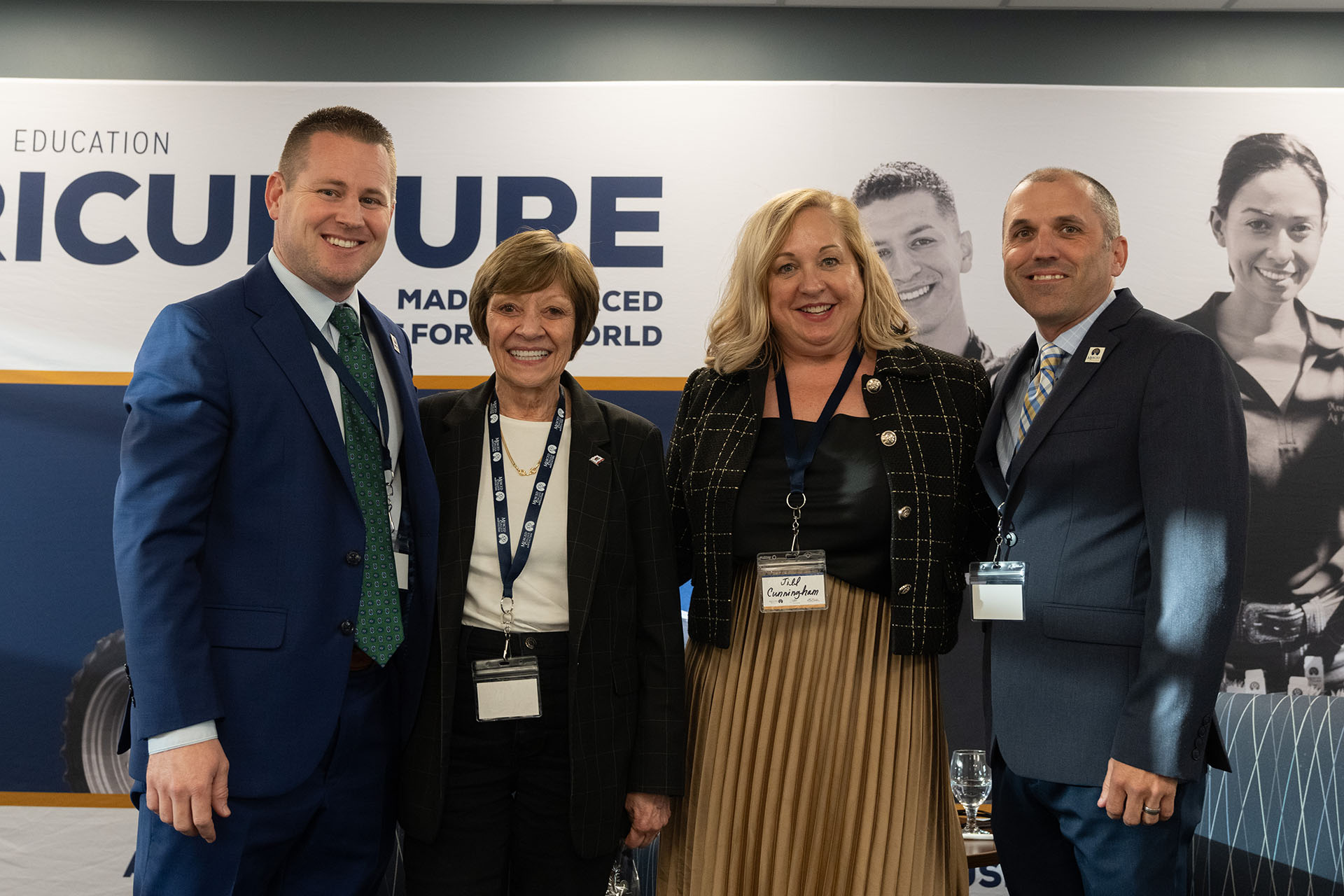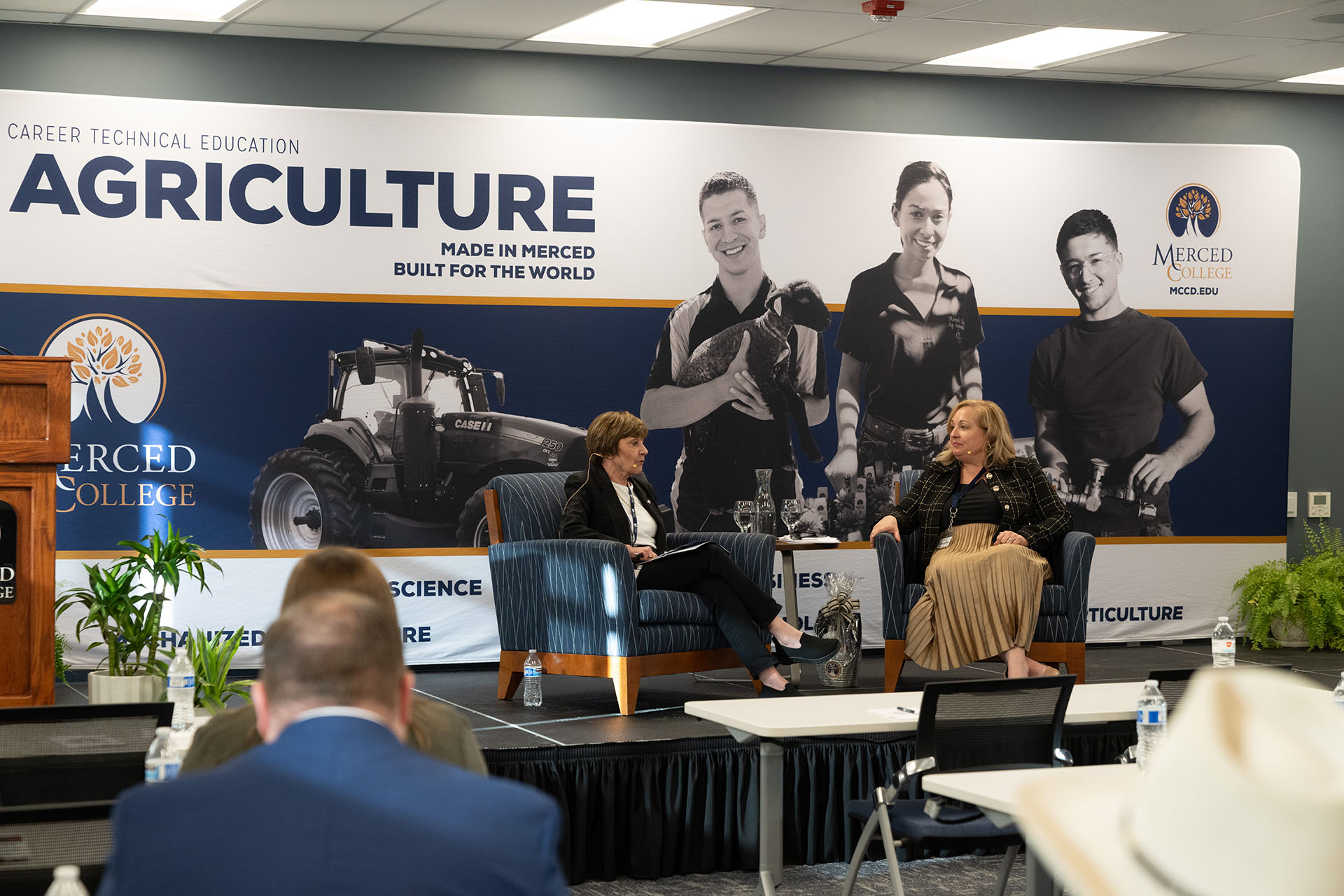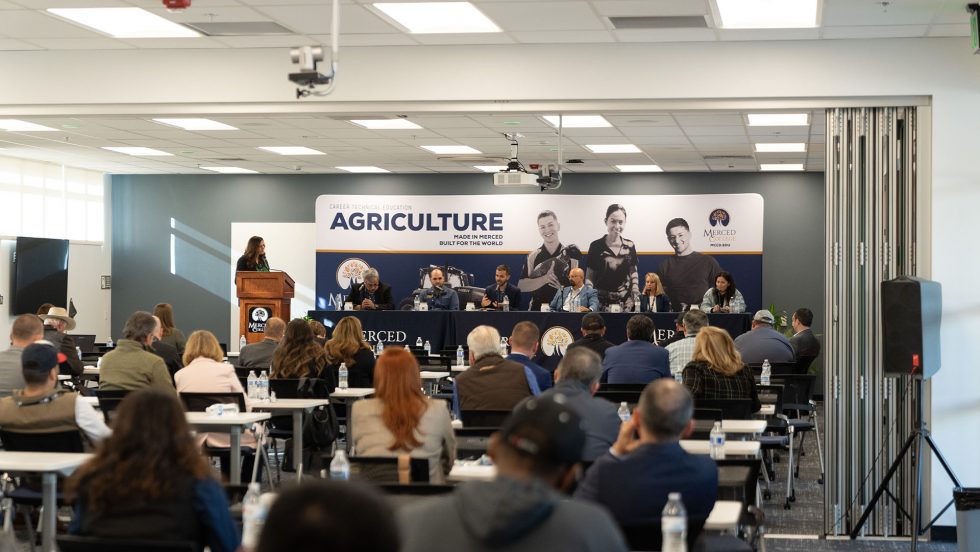Artificial intelligence, automation, electric vehicles, and robotics are reshaping the landscape of agriculture, as evidenced by the AgTechX Summit held at Merced College on March 7.
Agricultural professionals, local farmers, and leaders at Merced College shared cutting-edge technology, discussed the future of the industry, and highlighted Merced College’s pivotal role in agricultural education, showcasing a new AgTEC Innovation Center currently in development.
“President (Chris) Vitelli likes to say, ‘There has to be one community college that’s the most innovative. Why can’t it be ours?’” Jill Cunningham, Vice President of External Relations at Merced College, shared in her opening remarks.
The new AgTEC Innovation Center is funded by the F3 AgTEC grant, part of a groundbreaking initiative financed by the U.S. Economic Development Administration’s Build Back Better Regional Campaign.
“The Merced College AgTEC Innovation Center, slated for construction beginning in August 2024, will be a state-of-the-art facility that will revolutionize agricultural education and propel students into the forefront of industry innovation,” said Cody Jacobsen, Director of Ag Innovation.
The AgTechX Summit comprised three panel discussions and a fireside chat with Karen Ross, Secretary of the California Department of Food and Agriculture. Business owners, farmers, and agriculture executives from across California’s Central Valley shared their expertise, discussing the importance of agriculture education and competency-based education in upskilling the current agricultural workforce and training future generations.
The afternoon shed light on the pivotal role that agriculture education plays in cultivating industry-ready workers. Panelists shared that communication and on-the-job training are areas where ag education as a whole may be falling short. That is where Merced College comes into play.
As part of the F3 grant, Merced College is developing a competency-based education curriculum, where students will have the opportunity to train with the tools and skills that they will be using once on the job.
“Students will get firsthand experience of what the industry is like today,” Jacobsen said.

Aaron Hamilton, Professor of Industrial Electronics at Merced College, said he runs his classroom the way he would run a workplace, urging students to show up on time and prepared to get their tasks done.
“We try to give our students skills to make them quality employees,” Hamilton said.
Panelists at the event shared similar sentiments regarding the importance of ag education and proper training.
“We don’t hire smart people to tell them what to do,” said Peter Schneider, President of TGS Transportation. “We hire smart people so they can tell us what to do.”
During her fireside chat, Secretary Ross was asked about the role the community colleges will play in the future of agriculture, particularly in the Central Valley.
“Now that we’re finally valuing career and technical education, there are a lot of really good jobs in that arena,” Ross said. “Community college is very important.
“This part of the world is No. 1 in agricultural production, No. 1 in food and beverage manufacturing, and No. 1 in biotechnology. We have the resources here to be leaders in bioeconomy, the circular economy, and to grow the best food and grow the best people.”
The day’s events shared a common theme: Being innovative in educating the future of the agricultural workforce is more important than ever with the expansion of new technologies.
Students will soon have the opportunity to learn and grow their skills in the AgTEC Innovation Center, a building that is a first of its kind.
“Students across agriculture and industrial technology programs will benefit from contextualized experiences, ensuring they are well prepared for agriculture and food systems careers in the region,” Merced College President Chris Vitelli said. “The AgTEC Innovation Center will serve as a pivotal space, fostering connections between students and industry to cultivate future AgTEC leaders.”

